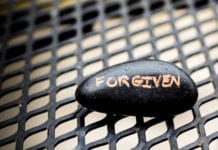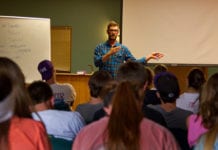If you’ve ever heard Rick Warren say “if you steal from 10 or more it’s sheer creativity” (from the quote: If you steal from one person, it’s plagiarism. If you steal from 5 people it’s research. And if you steal from 10 or more, it’s sheer creativity.), you’ll get me when I say, I’m a very creative person.
I invent almost nothing. I borrow a lot of ideas. I tweak a lot of borrowed ideas. And I mash-up things that I think will work well together. I am a mad scientist who loves taking parts of things and combining to make it better. I am a synthesizer who loves whiteboarding ways to make it happen.
After years of collaborating on marketing ideas and concept development, I actually came up with an original line (or at least think it’s mine) that I love. Here it is: When we’re planning events, we want to develop “next steps for every Parkview man or woman…and first steps for their friends.”
Why am I telling you this? Easy. It adds to the grouplife conversation about types of groups. In several recent articles (i.e., The Ongoing Open vs Closed Group Debate, Open Groups, Closed Groups, and Specialized Groups, and Was Jeus Really in a Closed Group?), we’ve had a lot of good conversation. Really some of the best interaction we’ve ever had.
And yet…I think we need one, very important clarification. Here it is:
When I say I’m a fan of open groups (and I am a big fan of the open group philosophy), I want you to understand that that doesn’t mean “open 24 hours.” An open group can have seasons where it closes to new people in order to care for it’s members. An open group has the freedom to dis-invite a group member that isn’t abiding by the group agreement. An open group can take its name off the small group finder while a complex issue is being worked out. ”Open”
can mean a lot of things. At it’s core, an open group has simply embraced an inclusive bias.
So…is there a need in a grouplife ecosystem for intentionally closed groups? Yes! Certain issues, certain objectives are more effectively attained in a group that limits participation to a pre-approved membership. An elder team, a therapy group, and a turbo group being developed for leadership are all forms of closed groups.
Do there need to be groups designed to include friends and neighbors? Absolutely! In fact, since family, friends, neighbors and co-workers are much more likely to come over to your house than come with you to church…if you don’t have ways to connect at crowd’s edge, you’ll never reach the widening 60% who will never be reached by the attractional model.
In short, there needs to be next steps for everyone…and first steps for their friends.
What do you think? See how there might need to be all kinds of groups in order to provide next steps and first steps? Want to argue? Got a question? You can click here to jump into the conversation.










